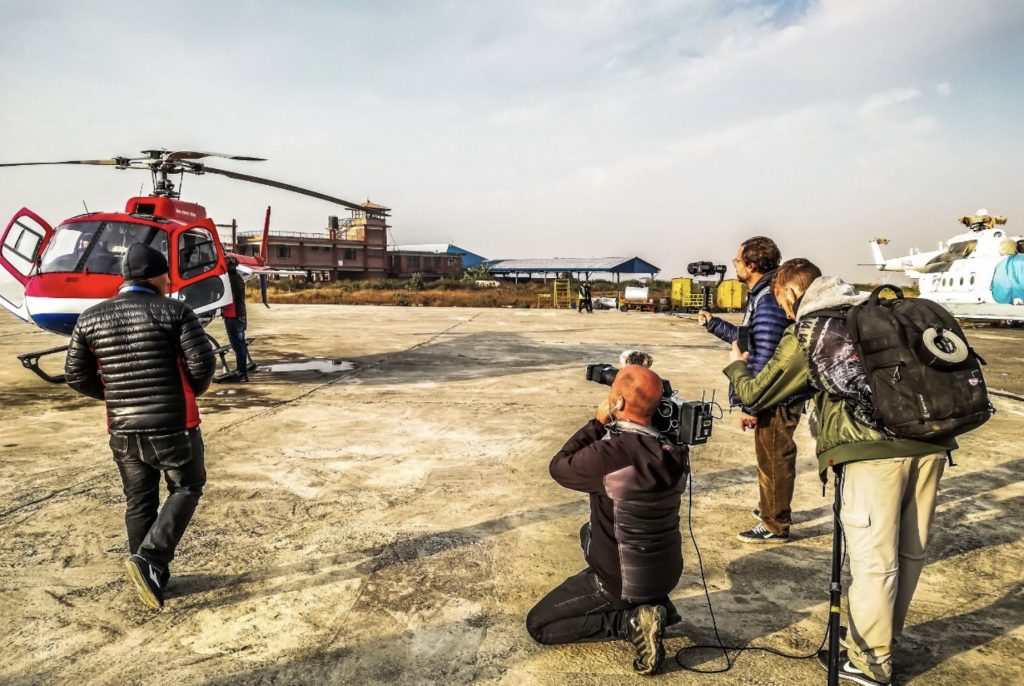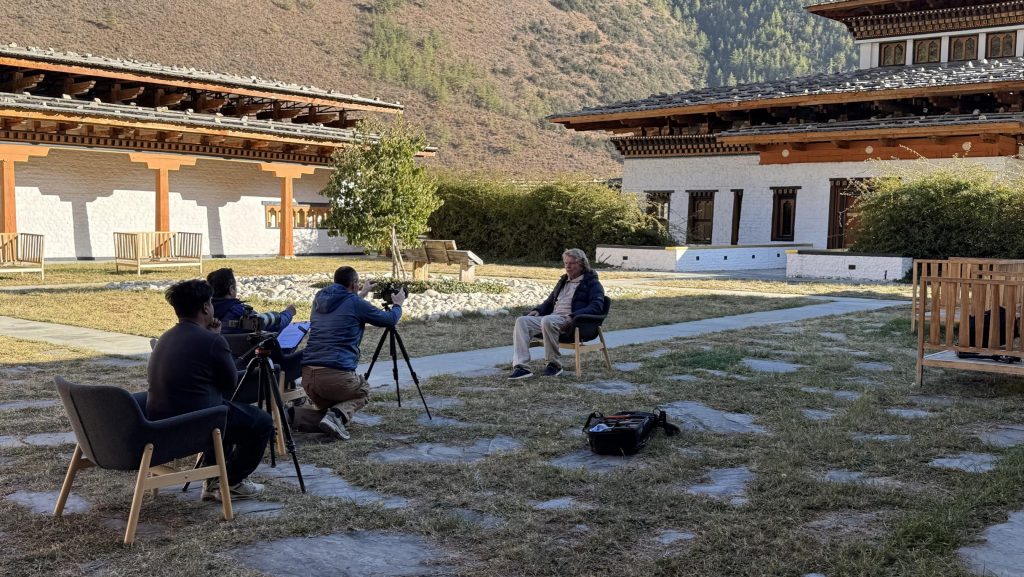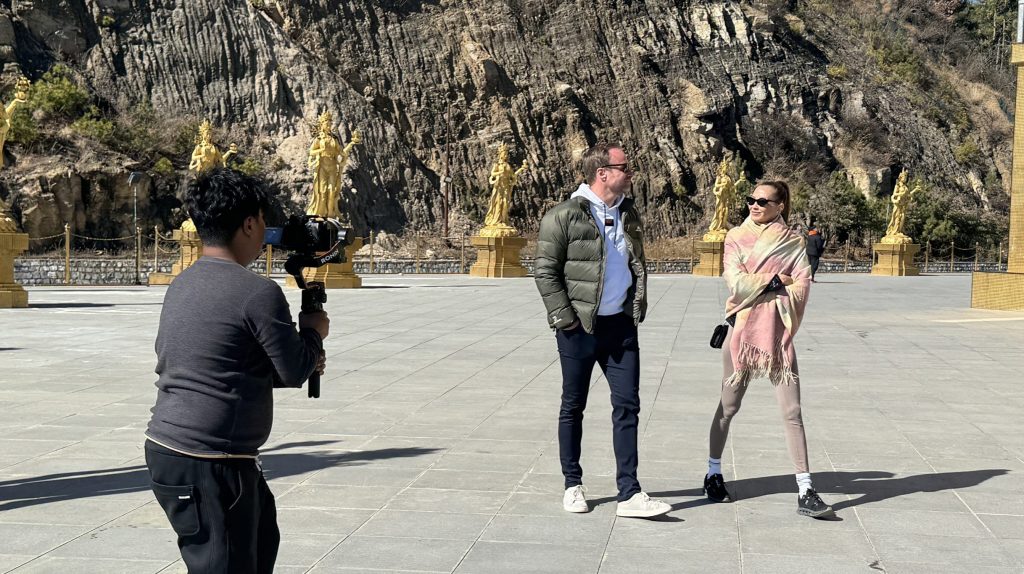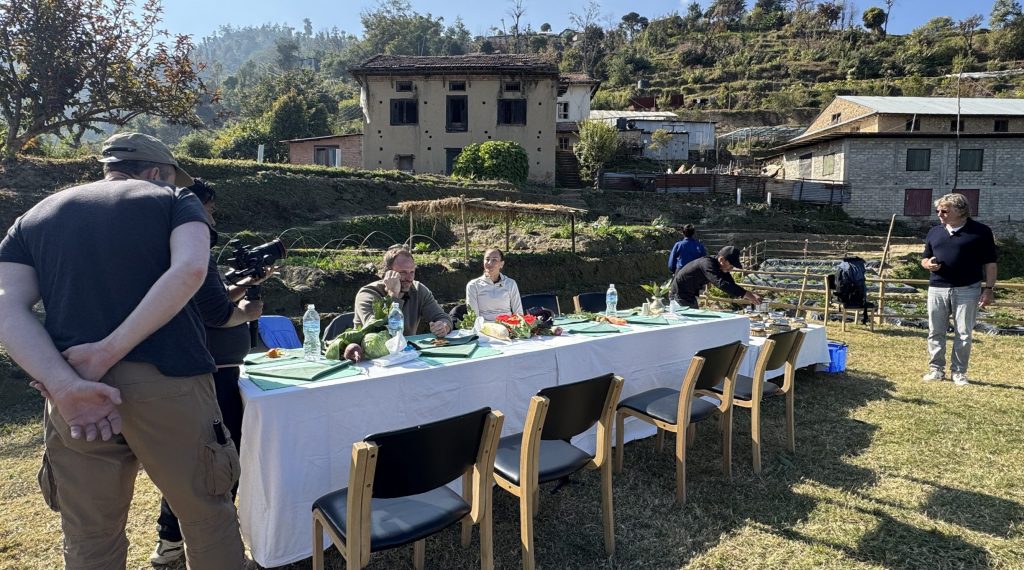Shooting a film in Nepal offers a unique blend of stunning natural landscapes, rich cultural heritage, and diverse environments. However, it also comes with specific logistical, legal, and practical considerations. Here’s a comprehensive guide to help you navigate the process:
- Pre-Production Planning
- Location Scouting: Nepal offers a wide range of filming locations, from the Himalayas to ancient cities and jungles. It’s important to scout locations early to understand the terrain, weather conditions, and accessibility.
- Fixer Services: Hiring a local fixer is crucial. They can assist with location scouting, permits, logistics, and cultural nuances, ensuring smooth operations on the ground.
- Permits and Legal Requirements
- Film Permit: You must obtain a film permit from the Nepal Film Development Board (NFDB). This is mandatory for all types of filming, including documentaries, feature films, commercials, and TV shows.
- Protected Areas Permits: If you plan to film in national parks, conservation areas, or near religious sites, additional permits are required from the relevant authorities (e.g., the Department of National Parks and Wildlife Conservation).
- Drone Permits: Drone use is regulated in Nepal. You’ll need to obtain a separate permit for aerial filming from the Civil Aviation Authority of Nepal (CAAN).
- Hiring Local Crew and Equipment
- Local Crew: Nepal has a growing pool of experienced film professionals, including cinematographers, sound technicians, and production assistants. Hiring local crew can be cost-effective and helpful for navigating local customs and languages.
- Equipment Rental: While some equipment can be rented locally, it’s advisable to bring specialized gear with you. Ensure that all imported equipment is declared at customs to avoid issues.
- Logistics and Transportation
- Travel and Accommodation: Depending on your filming location, travel can be challenging. In remote areas, you may need to arrange for helicopters, porters, or off-road vehicles. Accommodation options range from luxury hotels in cities to basic teahouses in trekking areas.
- Weather Considerations: Nepal has a diverse climate, with the monsoon season (June to September) bringing heavy rains that can disrupt travel and filming schedules. The best seasons for filming are typically pre-monsoon (March to May) and post-monsoon (October to November).
- Cultural Sensitivity and Community Engagement
- Respect for Local Customs: Nepal is a culturally rich and diverse country with deep religious traditions. It’s essential to show respect for local customs, especially when filming in temples, monasteries, or rural communities.
- Community Engagement: When filming in villages or remote areas, it’s good practice to engage with the local community leaders, explain your project, and seek their consent.
- Health and Safety
- Altitude Considerations: If you’re filming in high-altitude areas like the Everest region or Annapurna, be aware of the risks of altitude sickness. Proper acclimatization and medical preparation are essential.
- Medical Precautions: Carry a comprehensive first aid kit, and be aware of the nearest medical facilities. In remote areas, you may need to arrange for emergency evacuation plans.
- Vaccinations: Ensure that you and your crew are up-to-date on recommended vaccinations for Nepal, including those for typhoid, hepatitis, and rabies.
- Insurance
- Production Insurance: Make sure your production is fully insured, including coverage for equipment, crew health, and liability. Confirm that your insurance covers high-altitude activities if applicable.
- Local Insurance Requirements: You may need to meet specific local insurance requirements, particularly if employing local crew or using local equipment.
- Post-Production Considerations
- Post-Production in Nepal: While there are some post-production facilities in Kathmandu, many filmmakers prefer to complete post-production work outside of Nepal. However, it can be beneficial to do preliminary editing and review on-site to ensure footage is captured as needed.
- Budgeting
- Cost Considerations: Filming in Nepal can be cost-effective compared to many other countries, but budgeting for potential delays, additional permits, and logistical challenges is important.
- Currency: The local currency is the Nepalese Rupee (NPR). While major cities accept credit cards and have ATMs, cash is necessary in rural areas.
- Contacts and Resources
- Nepal Film Development Board (NFDB): The NFDB is your primary contact for all official matters related to film production in Nepal. They can assist with permits, provide guidelines, and connect you with local resources.
- Embassies and Consulates: If you’re an international crew, keep in touch with your embassy or consulate in Nepal for assistance with visas, legal matters, or emergencies.
By carefully planning and respecting local regulations and customs, you can have a successful and rewarding filming experience in Nepal.





